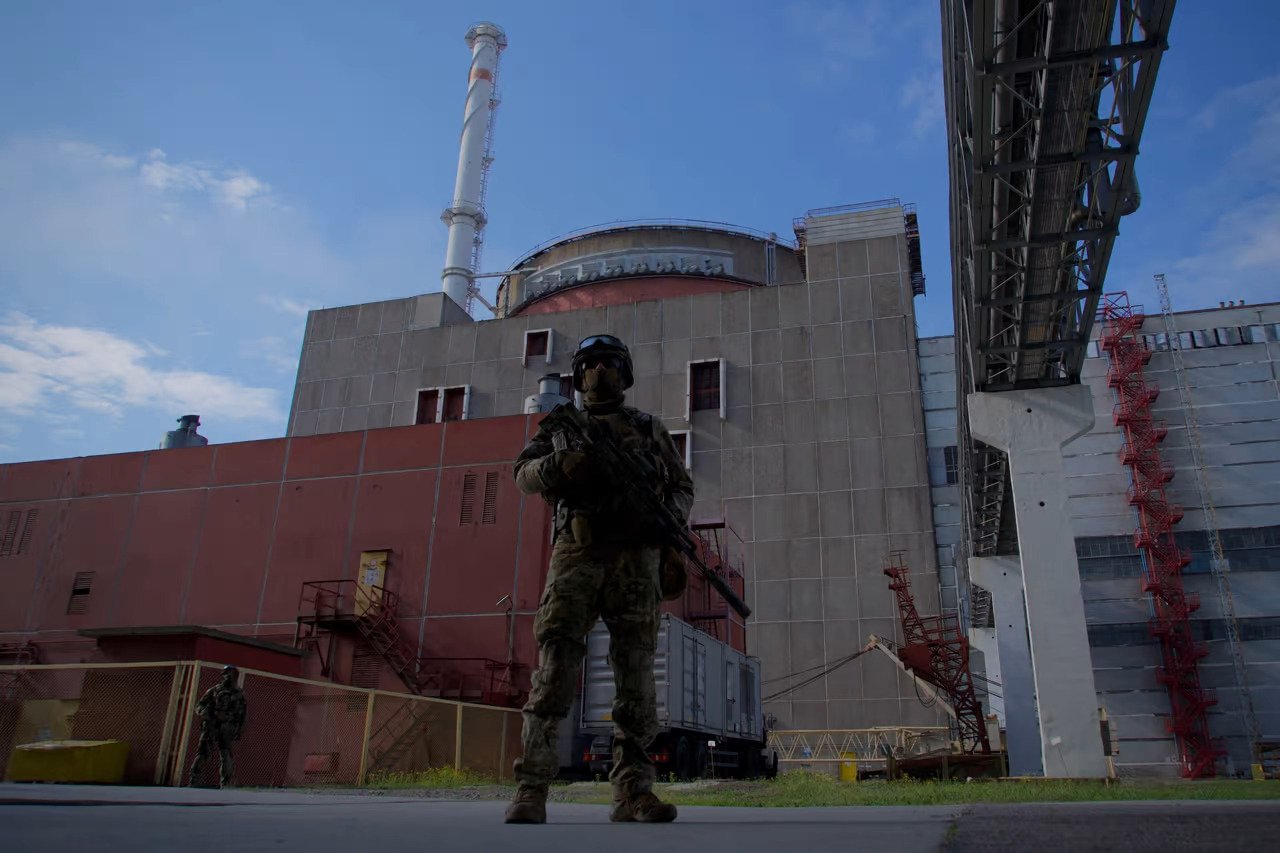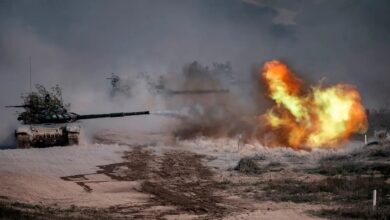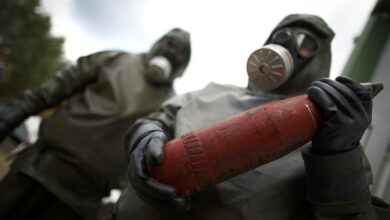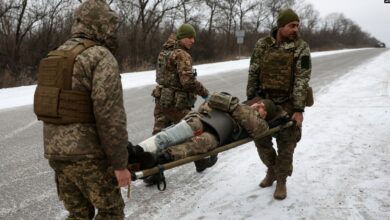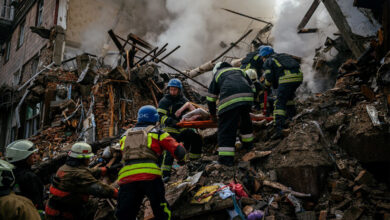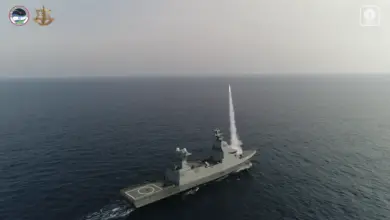Ukraine and Russia traded fresh accusations of shelling at the Zaporizhzhia nuclear power plant on Saturday, as its operator warned of the risk of a radioactive leak.
The Zaporizhzhia plant in southern Ukraine has been occupied by Russian troops since early March.
Kyiv and Moscow have repeatedly accused each other of rocket attacks in the vicinity of the plant — Europe’s largest — located in the city of Energodar.
On Saturday, its Ukraine operator Energoatom said Russian troops had “repeatedly shelled” it over the past day.
“As a result of periodic shelling, the infrastructure of the station has been damaged, there are risks of hydrogen leakage and sputtering of radioactive substances, and the fire hazard is high,” Energoatom said on Telegram.
The agency said that as of midday Saturday (0900 GMT) the plant “operates with the risk of violating radiation and fire safety standards.”
Russia’s defense ministry, however, said Ukrainian forces had “shelled the territory of the station three times” from the town of Marganets across the Dnipro River.
The ministry accused Kyiv of “nuclear terrorism” and said shells had landed near areas storing fresh nuclear fuel and radioactive waste.
Radiation levels at the plant “remain normal” said the ministry statement.
On Tuesday, residents in Khortytskyi district — 45 kilometers (29 miles) north-east from the power plant — were given iodine pills to reduce radiation risk in case of a leak.
Residents closer to the plant told AFP earlier this month that they had received iodine pills at the very start of the war.
⚡️Explosions and fire in occupied Enerhodar, close to location of Zaporizhzhia nuclear power plant- mayor Dmytro Orlov pic.twitter.com/OTqhg8XeJG
— Anton Gerashchenko (@Gerashchenko_en) August 28, 2022
Power Out
On Thursday, the Zaporizhzhia plant was cut off from Ukraine’s national power grid for the first time in its four-decade history due to “actions of the invaders,” Energoatom said.
Ukrainian President Volodymyr Zelensky said the power cut was caused by Russian shelling of the last active power line linking the plant to the network.
It came back online on Friday afternoon, but Zelensky warned “the worst-case scenario … is constantly being provoked by Russian forces.”
The International Atomic Energy Agency (IAEA) is urging for a mission to the plant “as soon as possible to help stabilize the nuclear safety and security situation there.”
Agency head Rafael Mariano Grossi has said he wants to visit the site within days, warning of potential disaster.
Ukraine energy minister adviser Lana Zerkal said an IAEA inspection “is planned for the next week.”
But Zerkal told Ukraine’s Radio NV late Thursday she was skeptical the mission would go ahead, despite Moscow’s formal agreement, as “they are artificially creating all the conditions so that the mission will not reach the site.”
Diverting Energy
Britain’s defense ministry said satellite imagery showed an increased presence of Russian troops at the power plant with armored personnel carriers deployed within 60 meters (200 feet) of one reactor.
Kyiv suspects Moscow intends to divert power from the Zaporizhzhia plant to the Crimean peninsula, annexed by Russia in 2014. Washington has warned against any such move.
“The electricity that it produces rightly belongs to Ukraine,” State Department spokesman Vedant Patel told reporters, saying attempts to redirect power to occupied areas were “unacceptable.”
Russia’s invasion of Ukraine — which this week entered its seventh month — has also prompted a wider global energy crisis.
Anxiety over gas and oil supply has sent prices soaring.
Meanwhile, the EU — which declares itself a staunch ally of Ukraine — has vowed to wean its 27 member states off Russian energy to protest the nation’s attack on its neighbor.
On Friday, both Germany and France reported that they expected electricity prices next year to increase tenfold over those this year.
French finance minister Bruno Le Maire pledged on Saturday to keep electricity costs in check.
Paris has put in place an energy price cap to shield households until December 31 and Le Maire said that next year’s expected hikes would be “contained increases.”
The EU presidency has said it will hold an emergency summit to address the crisis as the winter months approach.
Britain announced Saturday it would give six underwater drones to Ukraine to help it clear their coastline of Russian mines and that it was training Ukrainians to use them.
“Russia’s cynical attempts to hold the world’s food supply to ransom must not be allowed to succeed,” said Defence Secretary Ben Wallace.
The Royal Navy is also training Ukrainian sailors to operate Sandown Class Minehunter vessels, said a British defense ministry statement.
Also Saturday, Russia published a decree that makes it easier for Ukrainian citizens to live and work in Russia by scrapping work permits and allowing indefinite residency.
Moscow says 3.6 million Ukrainian nationals, including 587,000 children, have come to Russia since the start of the offensive in late February.

